Farmers and crofters from across Scotland turned up in their droves for yesterday’s mass lobby of Holyrood.
They all wanted one thing – a fair deal for the industry in next week’s Scottish budget.
Within that, their wish list for ministers included more cash for agriculture out of a public sector funding pot boosted by Westminster increasing Scotland’s block grant.
And they were looking for long-term piece of mind in a multi-annual funding package.
Farmers have rallied in both London and Edinburgh to voice their concerns
Their trip to Edinburgh followed hot on the heels of an even bigger farmers’ mass rally in London.
That one was focused around the UK Government’s controversial decision to cut inheritance tax reliefs available to farmers.
The Treasury insists the changes will affect only about one-quarter of UK farms.
Father-and-son farmers Gavin and Henry Dodgson, from Logie Farm, near Kirriemuir, Angus, were among those who pitched up at Holyrood.
The call for a “fair” funding deal was definitely on their minds but so too was the inheritance tax change.
‘Unaffordable’ loss of tax relief
Henry, 31, said: “Our family simply can’t afford this tax.
“In a good year, our farm will make make profits of £10,000 to £20,000.
“But the inheritance tax bill could run into hundreds of thousands of pounds.”
Gavin, 73, bought his 335-acre, organic farm in the 1990s.
“It was a dream for me to get into farming,” said Gavin, who previously worked in the financial services industry.
He’s now worried about passing his business on to the next generation.
This will likely leave them with an “unaffordable” inheritance tax bill after the rules for agriculture and business property reliefs change in April 2026.
Farm ‘defines my life’
Henry, who works on the farm, explained: “We are asset rich but everything we have is tied up and used productively.
“There is no financial reason for us to be in farming at all without this (current) tax incentive.”
He continued: “I grew up on the farm and it defines my life. I know every square inch of it.”
Henry’s younger sister, Olivia, 27, still hope to take over the business someday.
But, ominously, Henry said: “We’re having to rethink it. We’ll probably have to do some accounting gymnastics to take it on.”
We are asset rich but everything we have is tied up and used productively.” Angus farmer Henry Dodgson
Mark Wood, 50, is a third generation family farmer from Insch, Aberdeenshire.
He and his partner, Lynda Watt, said they were also going to have to “consider how we want to go forward” in light of the tax changes.
Between them, they have one son and two daughters.
Passing on the farm to a fourth generation of the family may have just got tougher.
Ernie Stephens, 76, and his son, Nigel, 41, travelled down to Edinburgh from Inverbervie to join the farming throng.
It was the first time in more than six decades working in the industry that Ernie ha felt compelled to take such action.
Farmers are getting a raw deal in terms of government funding, he said, adding: “We need to get our economy in some sort of order.”
There is little money left for investing in machinery, new sheds or maintenance, he said.
The knock-on effects for Scotland’s agricultural supply chain are severe, with many firms seeing their trade dry up as farming customers struggle to stay afloat, he added.
Abattoir closure fear
Reflecting on falling cattle herd numbers across the UK, Ernie warned: “There is surely going to be an abattoir closing somewhere.”
Meanwhile, many younger farmers are increasingly disillusioned about the future, he said.
Ernie and his wife, Carol, run their 300-acre farm with help from Nigel and his wife, Ruth.
When asked what the future holds for their farm, given the current furore over inheritance tax as well as major funding concerns, Nigel said: ” We’re not sure yet.
“We’ll wait until the dust settles before deciding what to do next.”
Andrew Robertson, 60, farms nearly 900 acres at Titaboutie, Tarland, Aberdeenshire.
The business has been in family hands for many decades.
But, as staple food producers, farmers cannot be expected to “do it for nothing” Andrew said.
Beef and lamb prices have recently reached record levels.
But there is no knowing how long these will last and costs have skyrocketed, squeezing margins, Andrew said. And there is very little incentive to invest in the future, he added.
Succession plans up in the air as farmers gather in Edinburgh
The family farm is is still in his parents’ names, George and Jean.
Ideally, the business would pass to Andrew’s 32-year-old son, Daniel.
But uncertainties currently facing the industry make succession planning complicated, the farmer said.
He added: “We’ll have to speak to our accountants.”
The need for a more certain future for the industry is also what Gordon McKilligan is looking for.
Gordon, 71, farms at Headtown of Ord, Cornhill, near Banff. He won a National Farmers’ Union Scotland “unsung hero” award just a few years ago.
‘Disillusionment’ among farmers
He breeds cows and sheep, and also does “a bit of arable”.
“There’s disillusionment across our industry,” he said, adding: “Nobody knows what’s in the future for us.”
Farmers need to be able to plan ahead for “as many years as we can”, he said.
He continued; “I know there area lot of demands on public finances.
“But it’s vital we get across that farming is important. We provide the food for live and look after our countryside.”
Jack Stevenson, of Portsoy, said the fact so many farmers wanted to interrupt their busy working lives to be in Edinburgh reflected their “passion” for protecting the industry’s future.
“Our voice is better in bigger numbers,” he said as the bus he was travelling on – full of north-east farmers – neared the capital.
Jack, 51, said he was, like many at the rally outside Holyrood, trying to protect a “way of life” for his and future generations.
Costs are going up and profits down in the industry, he said, adding: “We do this job because we love it.”
Mike Davis, of West Knockenbaird Farm, Insch, is among those who were also at last week’s farmers’ rally in London.
“We have to make the Scottish Government aware of how crucial it is to maintain long-term support for the agriculture industry,” Mike said.
He added: “The industry can’t stand still. Farmers have to keep investing but they have to have certainty of what their funding will be.
“It’s important we’ve come down to Edinburgh to make our case at the Scottish parliament.
“It’s very disappointing we’re not able to meet any Labour MSPs.”
800-1,000 farmers and crofters in Edinburgh
First Minister John Swinney and MSPs from other parties met some of those taking part in the rally.
There were an estimated 800-1,000 farmers and crofters in Edinburgh.
Addressing the crowd, Highland Perthshire farmer and National Farmers’ Union Scotland (NFUS) president Martin Kennedy said: “In a show of unity, the whole supply chain of those who service and supply our sector –processors, auctioneers, hauliers, agricultural suppliers, lawyers, accountants and many more – were represented in huge numbers today.
“Scottish farmers and crofters deserve a budget from Scottish Government that recognises their indispensable role in the rural and wider economy.”
The NFUS president added: “There are thousands of jobs and businesses in the supply chain absolutely reliant on what we produce 365 days a year.
“The MSPs of all parties who have joined this rally have heard the fantastic story we have to tell on the economy, food production, climate change and biodiversity.
“They must recognise that in the budget on December 4.
“Scottish Parliament politicians will decide out future and that is why we are here in strength as a whole industry to make our voice heard.”
Moray sheep farmer Tim Eagle, the Scots Tories’ rural affairs spokesman, said the NFUS asks for next week’s budget were “very fair”.
Ministers must deliver at least the “baseline” of £620 million rolled over from last year for agricultural and rural development, plus £50m to reflect the Autumn Budget block grant increase for Scotland, Mr Eagle said.
The package for agriculture should also include the Scottish Government’s annual contribution of about £60m to supportthe sector and £46m of uncommitted funds removed from previous budgets, he added.
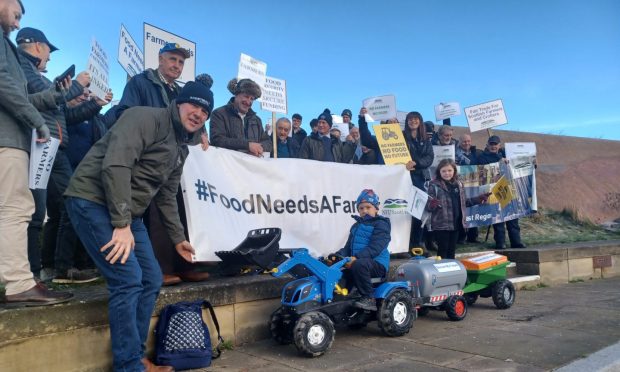
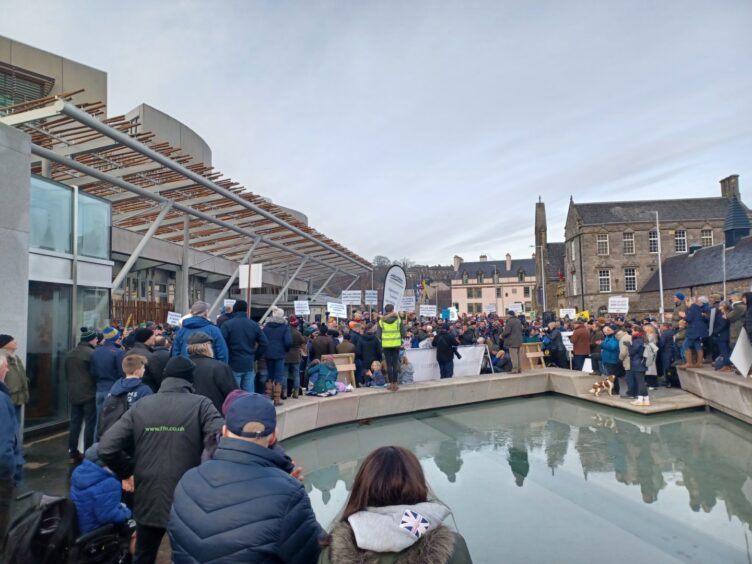
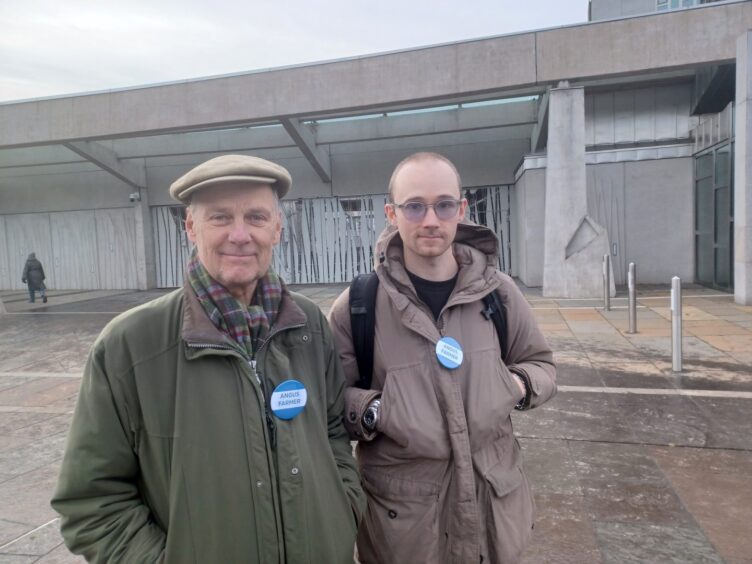
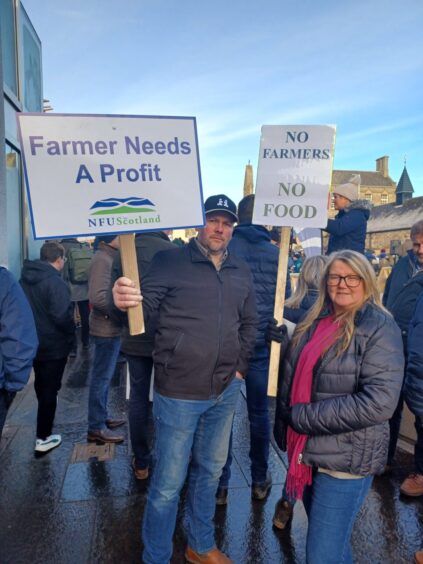
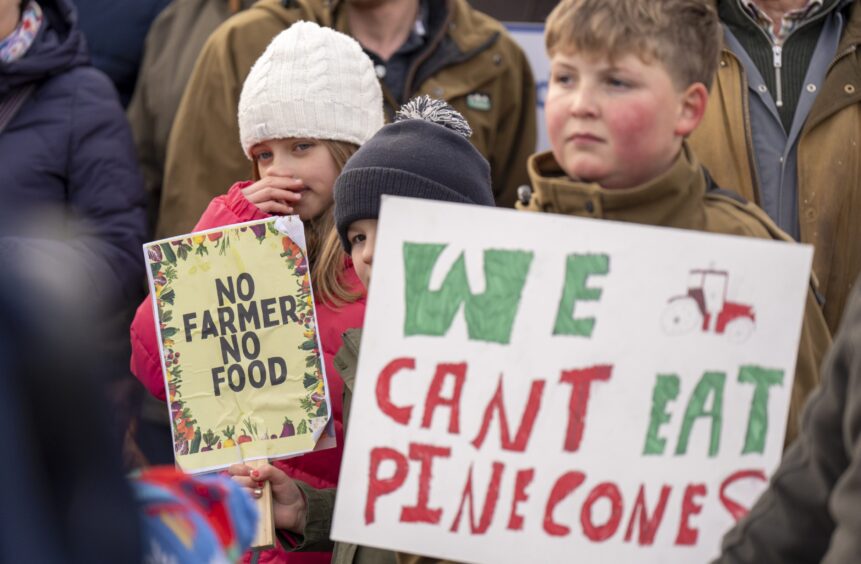
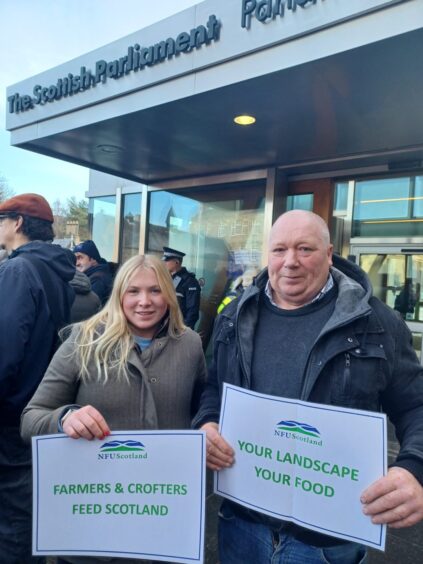
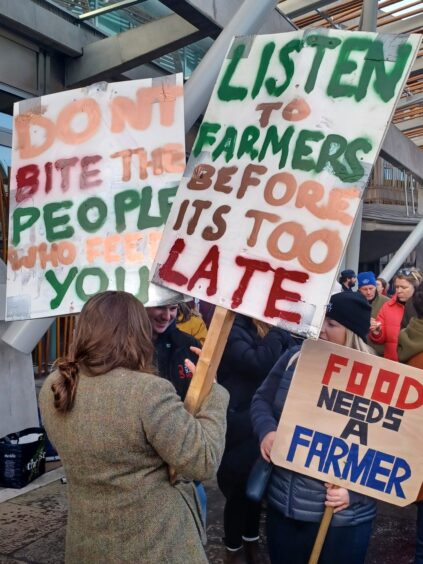
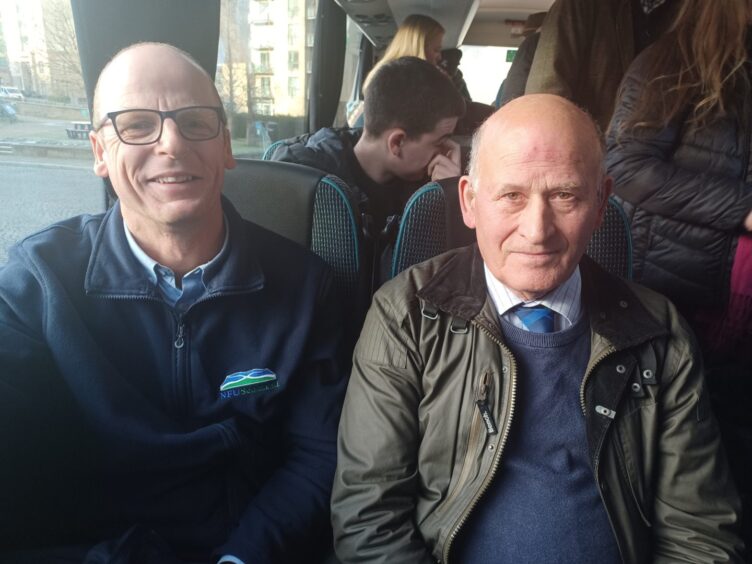
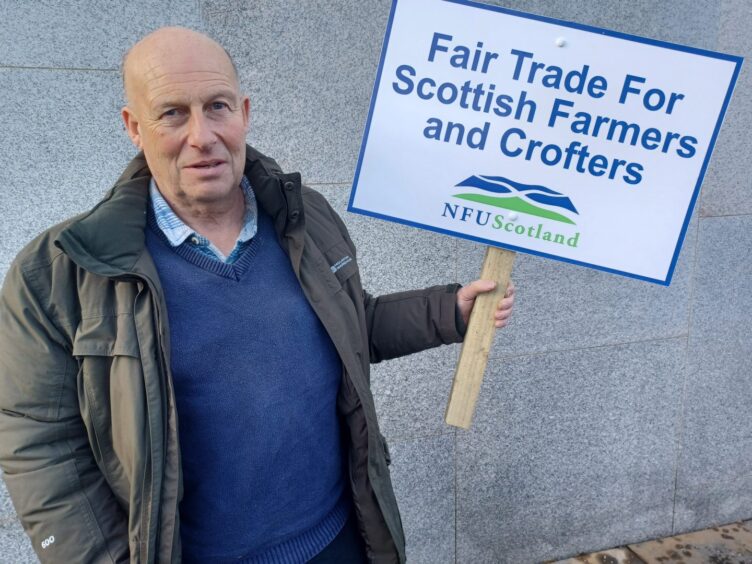
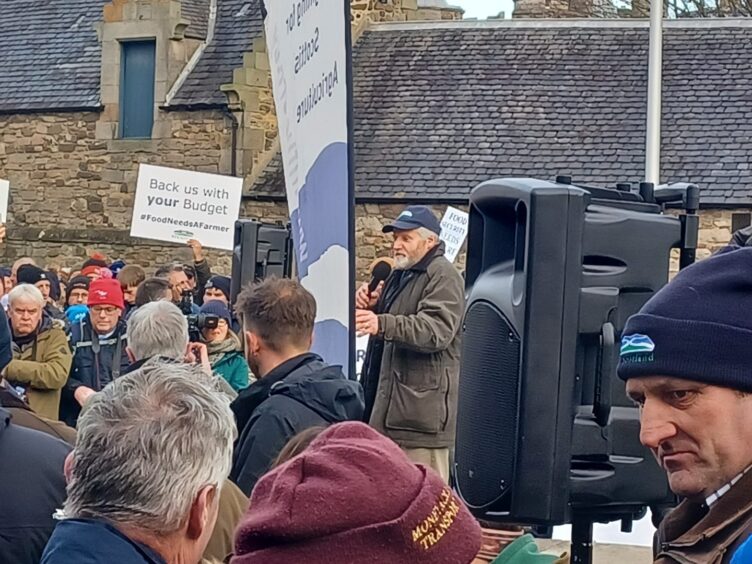

Conversation